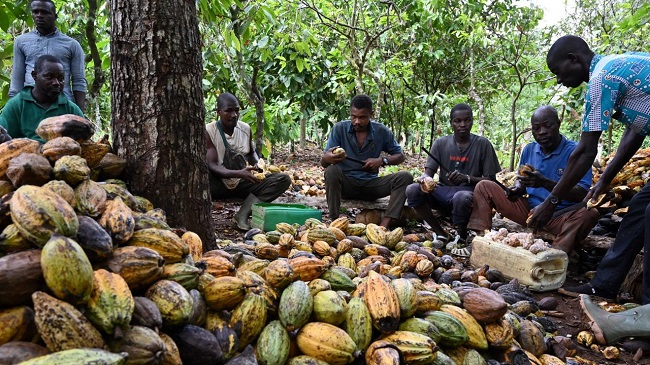
An agribusiness expert, Dr Yemisi Shittu has warned that West African countries are on the verge of losing their primacy in cocoa production in the world.
According to Shittu, the region was in the throes of a cocoa crisis because farmers in the subregion faced issues of disease, climate change, flooding among others.
Across the border of the country, Ivory Coast and Ghana are presently devastated by diseases such as fungal black pod disease and cocoa swollen shoot virus such that international producers were shifting their sights to alternative regions in South America, particularly Ecuador, and Brazil.
The situation, she noted has led to limited international cocoa supplies and resultant stratospheric increase in prices such that a ton of cocoa that cost N1.5million last year now costs N13million.
More than ever, she said it had become expedient for agricultural research institutes to be at the vanguard of ensuring a resurgence of cocoa production in Nigeria.
Shittu made this call while speaking at the 2024 In-House Research Review of the Cocoa Research Institute of Nigeria (CRIN), Ibadan, with the theme: “Varietal Development of Cocoa, Kola, Coffee, Cashew and Tea for Sustainable Circular Economic Growth in Nigeria,” held at the premises of the institute, on Tuesday.
In her call to action to CRIN, she said the institute, as a matter of urgency, must cultivate flood-resistant, disease-resistant, high-yielding cocoa varieties that retain the unique flavour profile that makes Nigeria cocoa prized globally.
Shittu, who is executive director at Johnvents Group, held that CRIN must leverage Market-Assisted Selection (MAS) to expedite the breeding process and help Nigeria reaffirm its position as a global leader in cocoa innovation and production.
This is as she said CRIN, in particular, must develop cocoa varieties with robust immunity to fight immediate threats and emerging pathogens.
Responding, the Executive Secretary, Agricultural Research Council of Nigeria, Professor Garba Sharubutu said the federal government had ordered the introduction of active and passive surveillance methods to ensure that those diseases ravaging cocoa farms in neighbouring countries do not cross the border into Nigeria.
He also said the federal government was collaborating with the private sector to translate research into practice, saying its research works did not just lie on shelves but were being adopted by farmers.
Sharubutu noted that there were several factors behind high cost of food items but stated that the federal government was implementing moves to ensure food security and had mandated agricultural research institutes to ensure more organised commodity associations to coordinate community boards.
On funding agricultural research, Sharubutu said the federal government had established the National Agricultural Development Fund to increase sources of revenue for agricultural ventures and reduce reliance on yearly budgets.
Speaking, Executive Director, CRIN, Dr Patrick Adebola said farmers must up their game else they face problems selling and exporting raw cocoa beans.
Adebola stressed that agricultural scientists must research into new diseases, and pests and get prepared to tackle emerging threats.
Adebola stressed that all efforts must be geared towards encouraging local production.
In his presentation, Dr Joseph Minari, an expert in Cell Biology and Genetics from the University of Lagos enjoined researchers to come up with project proposals that address agric production challenges in real-time such that they can easily win grants and funding.
The In-house review featured presentations by Agric scientists in way to ensure sustainable production of Kola, Coffee, Cashew, Cocoa, and Tea.
Source: